
 CAM Integrated Solutions has announced its official entry into the offshore decommissioning market, marking a significant milestone for the company as it continues to broaden its service offerings.
CAM Integrated Solutions has announced its official entry into the offshore decommissioning market, marking a significant milestone for the company as it continues to broaden its service offerings.
CAM’s new Decommissioning Division will provide clients with turnkey solutions that ensure the efficient and environmentally responsible retirement of end-of-life assets. By integrating decommissioning with its existing services, CAM is positioned to deliver great value to operators navigating end-of-life asset strategies offshore in the Gulf of Mexico.
To spearhead the new initiative, CAM has appointed Brady Barras as the Vice President of Decommissioning. With more than 31 years of experience in the offshore oil and gas industry, Barras will bring his wealth of expertise to decommissioning project through the Gulf and beyond.
Craig Pierrotti, CEO of CAM Integrated Solutions, said, “We are thrilled to be entering the decommissioning market, a natural next step in the evolution of CAM’s integrated service offering. Brady’s depth of knowledge, hands-n experience, and commitment to operational excellent make him the ideal person to lead this new endeavour. I am confident that with Brady at the helm, CAM will quickly establish itself as a trusted and forward-thinking partner in the decommissioning space.”
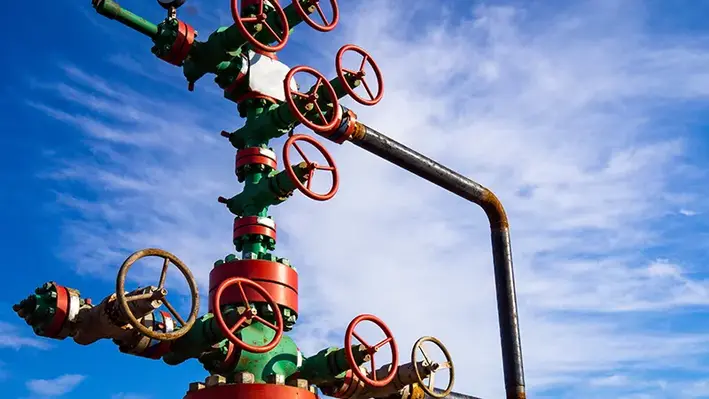
 A complex wellhead severance project was completed in the Southern North Sea by Mermaid Subsea Services following critical challenges relating to target well removal.
A complex wellhead severance project was completed in the Southern North Sea by Mermaid Subsea Services following critical challenges relating to target well removal.
This was tackled with a dedicated precision subsea tooling and expert project execution to sever and recover the well conductor, with all environmental and regulatory standards considered.
Delivered on schedule and within budget, the Island Valiant-driven campaign turned out successful with close coordination across multiple vendors to ensure seamless and safe operation.
Scott Cormack, Regional Director for Mermaid Subsea Services (UK), said, “This successful wellhead severance marks a major achievement for Mermaid. By overcoming previous challenges, we’ve demonstrated our capability to deliver complex decommissioning scopes safely, efficiently, and in line with regulations.”
This success ads to Mermaid's other effective completion of a scale inhibitor treatment on the Teal P2 well, part of the Anasuria Cluster in the Central North Sea.
Also conducted from the Island Valiant vessel, this time on behalf of Anasuria Operating Company (AOC), the intervention aims to safeguard production flow and well integrity for at least three years.
Recent projects underscore Mermaid’s growing capability in complex subsea work and its strong collaboration with multiple partners.
In addition to plans to introduce Mermaid’s own dive vessel later in 2025, limited availability remains for the Island Valiant, which the company has chartered for a second year.
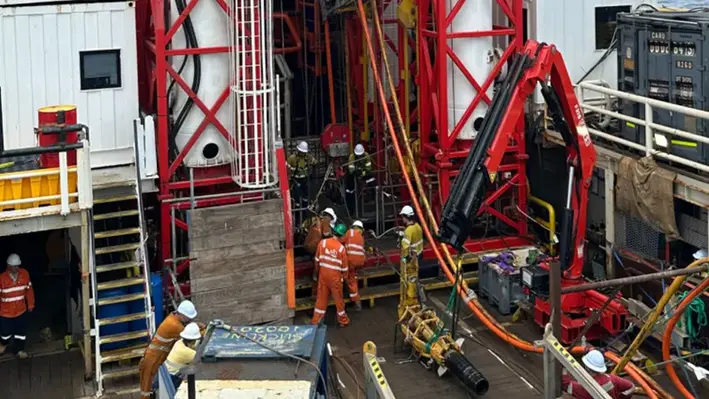
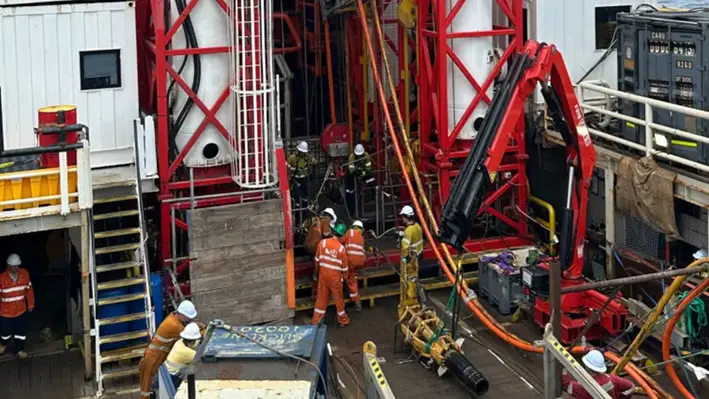
Sapura Energy, which has been conducting work on Australia’s Northern Endeavour project, said it intends to extend its involvement in the decommissioning and abandonment (D&A) sector as activity grows.
The Malaysia-based group stated that it is realigning its engineering and construction segment “to meet evolving industry demands” across a range of geographical areas and industry niches.“
Through its joint venture, Kitar Solutions, the group also plans to grow its presence in decommissioning services, leveraging established expertise and client networks,” it noted.
The partnership between Sapura Energy and Kitar Solutions, also links up with expertise from AF Offshore Decom, which leverages two decades of North Sea decommissioning expertise, as well as bringing in strategic offshore and onshore assets suitable for decommissioning services in Australia and across the south-east Asia region and elsewhere.
Earlier this year, the light well intervention vessel, the Sapura Constructor, completed work in the Laminaria-Corallina oil fields covering well suspension and flushing, as part of the Northern Endeavour floating production storage and offtake (FPSO) vessel decommissioning programme.
The campaign, which started in September 2024, is being overseen by Phase 1 contractor Petrofac Facilities Management Limited.
Sapura Energy said it also intends to optimise the deployment of other assets, such as Sapura 3500 and Sapura 1200, in non-decommissioning work to regions with “higher market activity”, identifying Brazil as a key area of operation, with all six of its jointly-owned pipelay vessels operating under long-term contracts.
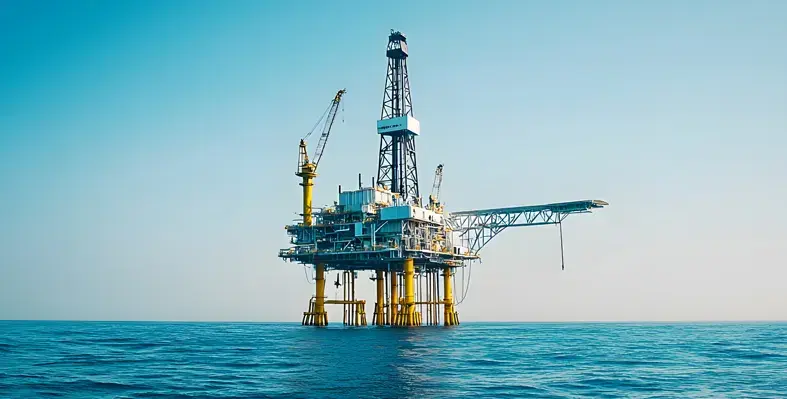

Egypt is set to enhance its natural gas production with the operation of a major new well, Zohr-6, in the Zohr field, located offshore in the Mediterranean Sea.
The details of this project were given to Al Arabiya Business by an Egyptian government employee.
According to Al Arabiya Business, this well is projected to yield 40 to 50 million cubic feet of gas daily, contributing significantly to Egypt’s energy needs.
The initiative, led by the Egyptian Ministry of Petroleum and Mineral Resources in collaboration with Italy’s Eni through their joint venture Petrobel, aims to address rising domestic demand, particularly for electricity and industrial sectors.
To ensure efficient production, Eni is implementing advanced water management techniques at Zohr-6, including chemical injections to prevent water leakage during gas extraction.
These efforts are part of broader operations to maintain the field’s output, which currently accounts for 1.1 to 1.2 billion cubic feet per day, which is approximately 30% of Egypt’s total gas production.
The Ministry’s strategic focus on the Zohr field includes ongoing investments, with US$13.5bn already allocated out of a US$39bn partnership with Eni since the field’s development began.
In early 2025, the arrival of a drilling vessel signaled intensified efforts to expand Zohr’s capacity.
Recent drilling and evaluation of 16 wells in Egypt’s Mediterranean concessions between July 2024 and May 2025 led to five new gas discoveries, promising a medium-term boost to national production.
Additionally, a US$120mn contract awarded to National United Petroleum Services Company (NESR) in March 2025 supports well maintenance through specialized chemical supplies.
Egypt’s gas strategy also addresses a production-consumption gap, with the government securing over 1.6 billion cubic feet per day through pipelines and LNG imports to meet 25-30% of the shortfall.
The Zohr-6 well’s activation in June 2025 marks a critical step in reducing this dependency and strengthening Egypt’s energy security.
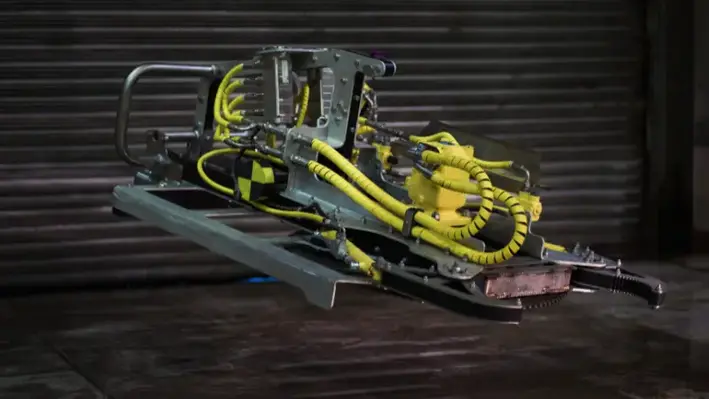
 Decom Engineering has developed an ultra-light Chopsaw which has the ability to transform how contractors approach challenging subsea cutting operations.
Decom Engineering has developed an ultra-light Chopsaw which has the ability to transform how contractors approach challenging subsea cutting operations.
The C1-16UL represents the most significant advancement in Decom’s Chopsaw range, specifically engineered to handle the demanding task of cutting flexible risers and mooring chains under tension.
A standout feature is the chopsaw’s weight characteristics – weighing approximately 270kg in air but only 30kg in sea water. The dramatic weight reduction offers unprecedented manoeuvrability with ROVs while maintaining robust cutting capabilities.
Commercial Director Nick McNally said, “We've fundamentally rewritten the chopsaw rulebook. Where traditional subsea cutting relied on heavier, rigid steel frames, we've created a tool that delivers superior performance while being light enough for smaller ROVs to deploy effectively. This eliminates the need for cranes and enables access to challenging locations previously considered inaccessible."
Following extensive testing and trails, the C1-16UL has been successfully deployed offshore on international projects, leading to Decom investing in three additional units which are currently engaged in cutting and flexible riser cutting operations.
McNally added, “Close collaboration with our clients has enabled us to deliver a tool that cuts large mooring chain in a matter of minutes, where previously these operations could take hours per cut using other methods. The efficiency gains and cost savings are transformational for our clients' subsea operations."
“The versatility of the C1-16UL allows for cuts to be made in any orientation, providing unprecedented flexibility in various operational scenarios. This adaptability, combined with its lightweight design, opens up entirely new possibilities for subsea intervention work.
“We identified significant knowledge gaps that couldn't be bridged by existing adaptations of conventional technology. The redesign of the cutting frame using subsea aluminium to reduce weight, the reconfiguration of hydraulic drive systems to enhance efficiency, and the integration of buoyancy control systems are hallmarks of Decom’s innovative approach to offering clients optimal cutting solutions.”
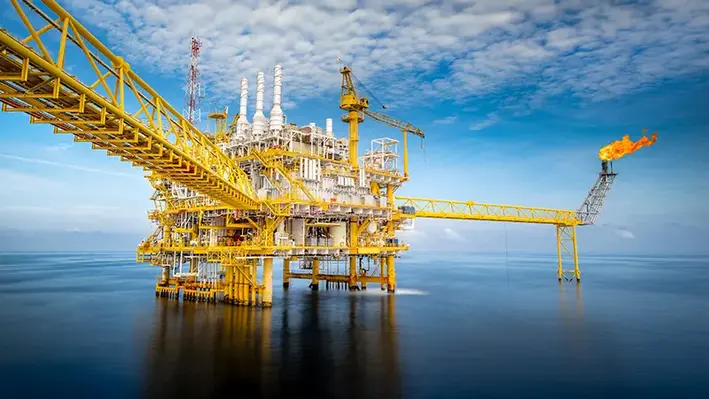
 Well intervention services are gaining momentum across Europe’s offshore energy sector, with the UK North Sea seeing a series of strategic operations aimed at optimising production, maintaining well integrity, and progressing decommissioning plans.
Well intervention services are gaining momentum across Europe’s offshore energy sector, with the UK North Sea seeing a series of strategic operations aimed at optimising production, maintaining well integrity, and progressing decommissioning plans.
As mature fields approach the end of their productive life, operators are increasingly turning to integrated technologies and service partnerships to extend asset value and support energy transition goals.
Halliburton has secured a five-year contract with Repsol Resources UK to support the full well lifecycle across its platform assets in the North Sea. The scope of work includes the delivery of subsurface technology, drilling and completion services, as well as digital solutions to enable efficient development and production. A key element of the agreement is the introduction of a rigless intervention framework, designed to enhance well construction, boost performance, and streamline plug and abandonment operations.
Timothy Horsfall, Vice President at Halliburton Europe, said the collaboration marks a strategic milestone, highlighting the shared commitment to safely and effectively maximising the potential of North Sea assets. This initiative reflects a broader trend of operators focusing on lifecycle efficiency while preparing for long-term decommissioning in compliance with UK regulatory targets.
Meanwhile, Odfjell Drilling Ltd has completed its scheduled Special Periodic Survey (SPS) for the Deepsea Aberdeen rig, concluding a multi-year SPS programme across its entire owned fleet. The sixth-generation semi-submersible has now returned to operations after three weeks of downtime, with work delivered on time and within budget. In addition to essential maintenance, Odfjell implemented major upgrades across the fleet, including the installation of a new blowout preventer on the Deepsea Atlantic and an increase in variable deck-load capacity on both Deepsea Atlantic and Deepsea Stavanger. These enhancements position the rigs for more efficient drilling, intervention, and decommissioning campaigns in challenging offshore environments.
CEO Kjetil Gjersdal acknowledged the extensive planning and coordination required, noting that with capital expenditure now significantly reduced and no major debt maturities until 2028, the company is well placed for future performance and returns. The Deepsea Aberdeen is currently drilling for Equinor at the Breidablikk field, under an extended contract that runs through 2026 with options into 2029.
Further demonstrating the importance of well intervention, Mermaid Subsea Services (UK) has completed a successful scale inhibitor treatment on the Teal P2 well in the Central North Sea. The project, undertaken for Anasuria Operating Company (AOC), was executed using the Island Valiant vessel and was aimed at preserving flow efficiency and well integrity for up to three years. The well is part of the Anasuria Cluster, a group of tied-back fields connected to a floating production storage and offloading unit. The intervention highlights Mermaid’s growing capabilities in subsea services and its ability to manage complex offshore operations in collaboration with multiple stakeholders. Scott Cormack, Regional Director for Mermaid, praised the outcome, calling it a reflection of the company’s commitment to operational excellence. AOC’s Wells Manager Tom Reeve added that the intervention not only protects long-term production but also strengthens the foundation for future work between the partners.
These developments collectively underscore how well intervention strategies, whether through lifecycle support, asset readiness, or targeted treatments, are shaping the future of offshore energy operations across the region.
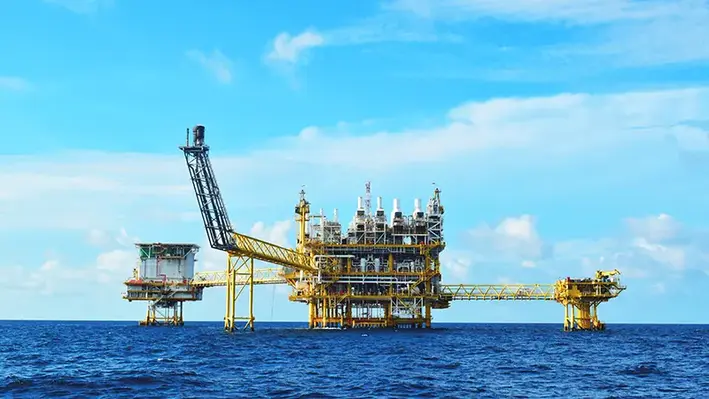
 An upgrade to autonomous hydraulic fracturing technology, Chevron USA and Halliburton have jointly developed a new process that allows closed-loop, feedback-driven completions in Colorado
An upgrade to autonomous hydraulic fracturing technology, Chevron USA and Halliburton have jointly developed a new process that allows closed-loop, feedback-driven completions in Colorado
This intelligent fracturing process combines automated stage execution with subsurface feedback to optimise delivery of energy into the wellbore without relying on human intervention.
The new process ensures efficiency and consistency during fracture execution. To top that, these new technologies come with added control functionality. Backed by digital automation and real-time feedback from the subsurface, autonomous workflows adjust completion behaviour with the goal of improving asset performance.
A combination of technologies from the wellsite to the cloud is required to enable this new approach to intelligent completions. Halliburton’s ZEUS IQ intelligent fracturing platform, comprised of OCTIV auto frac and Sensori monitoring, provides the necessary closed feedback loop and control capability. Chevron’s hydraulic fracturing and subsurface knowledge is built into an algorithm to enable the advanced decision making.
“We drive innovation in the digital space,” said Shawn Stasiuk, Halliburton’s Vice President of Production Enhancement. “We built the digital environment down to the field level and enable our customers to test their best ideas.”
Chevron’s work in closed-loop automation changes the approach to hydraulic fracturing in shale and tight rock formations. Operations can now react to a localized environment through real-time adaptation rather than performance forecasting.
“At Chevron, we focus on continuously advancing asset performance safely through the innovation of our subject matter experts, new technology, and strategic collaborations. This real-time adaptive feedback loop is expected to further drive efficiencies and improve overall asset performance,” said Chevron’s Kim McHugh, Vice President of the Rockies Business Unit.
Click here, to register for Offshore Network's international well intervention and decommissioning conferences.
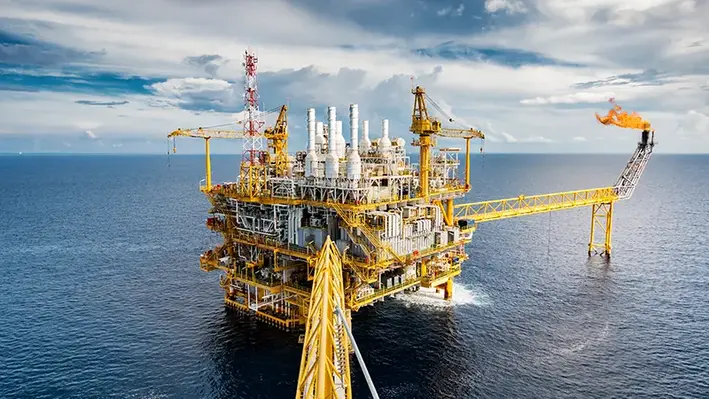
 Brunei Shell Petroleum Sdn Bhd has signed a five-year contract with John Wood Group PLC and its joint venture partner, Tendrill International Sdn Bhd, for the provision of brownfield engineering, procurement, and construction (EPC) services
Brunei Shell Petroleum Sdn Bhd has signed a five-year contract with John Wood Group PLC and its joint venture partner, Tendrill International Sdn Bhd, for the provision of brownfield engineering, procurement, and construction (EPC) services
The contract will span across conceptual design through commissioning and start-up for BSP offshore as well as onshore assets.
A front-runner of Brunei Darussalam's oil and gas industry, BSP contributes significantly to the region's daily oil and gas production.
TendrillWood employs approximately 1,000 people, 70% of which are Bruneian. Under this contract, the JV will continue to invest in the development of local expertise and the supply chain.
Ken Gilmartin, CEO at Wood said, “This award strengthens our position as a trusted EPC partner in Brunei. For over a decade Wood has consistently delivered safe, reliable and efficient engineering and operations solutions to BSP, contributing to domestic energy security.
“Our experience of BSP’s assets enables us to advance asset performance while enhancing local skills development and creating opportunities for the regional supply chain.”
Haryati Ramlee, Managing Director at Tendrill said, “This award marks a significant milestone for Tendrill and our joint venture with Wood. Our local expertise will complement Wood’s experience to deliver safe, efficient and result-driven outcomes for BSP while aligning to the national agenda to maximise local content, capacity development and long-term value creation for the country. Our joint venture brings world-class standard to local operations while ensuring our people, our communities and our industries continue to benefit.”
The contract has scope for a two-year extension.
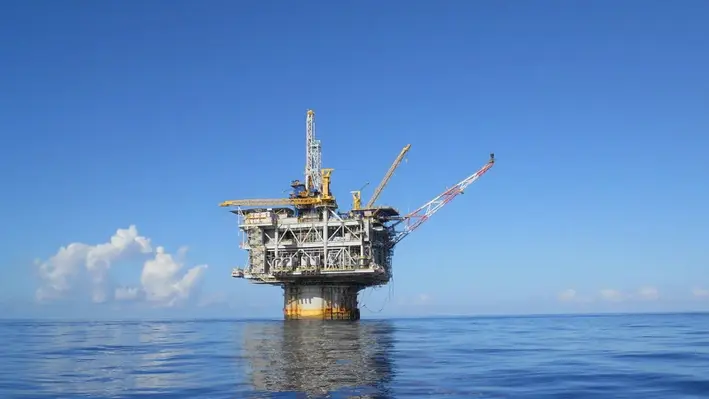
 ExxonMobil has awarded EnerMech a contract to deliver a complete flowline decommissioning package for the Hoover Diana development in the Gulf of Mexico.
ExxonMobil has awarded EnerMech a contract to deliver a complete flowline decommissioning package for the Hoover Diana development in the Gulf of Mexico.
The scope includes decommissioning subsea flowlines, marking EnerMech’s first major decommissioning campaign in the region. An expert team integrating multiple service lines will be deployed from EnerMech’s Energy Solutions division to complete the full scope of work, including coiled tubing, pressure pumping, chemical services, filtration, separation and pipeline gauging.
In more detail, the scope includes flushing, pigging and filling subsea pipelines to safely remove hydrocarbons and prepare for decommissioning. This involves flushing the umbilical, pipeline flushing and seawater fill operations for the subsea flowline loop, as well as nitrogen flushing via subsea vessel, coiled tubing services and sweater filling for the Northern Diana flowline.
EnerMech CEO, Charles Davison Jr., said, “The Hoover-Diana project marks our first large-scale decommissioning engagement in the Gulf of Mexico, building on the strong relationship we’ve developed with ExxonMobil in Guyana since 2018.
“Securing this new contract following a competitive tender is a testament to our deep expertise, integrated capabilities, and the trust ExxonMobil continues to place in our team. Our early engagement has allowed us to develop a tailored methodology that maximizes efficiencies, minimizes risks, and ensures a safe, cost-effective execution.”
The Hoover and Diana fields have been a landmark offshore development for 25 years. This project will utilise the once pioneering floating production deep draft caisson vessel which gained prestige for being the deepest draft drilling and production system in the world.
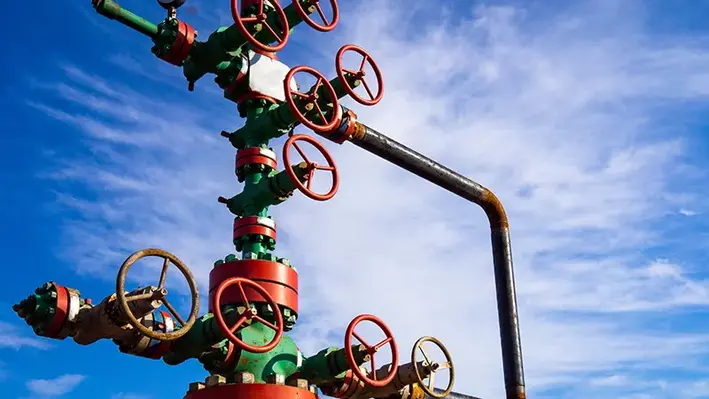
 Mermaid Subsea Services (UK) has completed a successful and safe well intervention on the Teal P2 well, located in the Central North Sea.
Mermaid Subsea Services (UK) has completed a successful and safe well intervention on the Teal P2 well, located in the Central North Sea.
The operation, undertaken on behalf of Anasuria Operating Company (AOC), utilised the Island Valiant vessel and supports the continued performance of the Anasuria Cluster—comprising the Teal, Teal South, and Guillemot A fields, all tied back to the Anasuria FPSO approximately 190km east of Aberdeen in 89 metres of water.
The primary goal of the intervention was to carry out a scale inhibitor treatment on the Teal P2 well, situated around 4km from the FPSO. The scale squeeze was designed to preserve flow efficiency and well integrity for up to three years.
This operation marked a key milestone in Mermaid’s expanding subsea services portfolio, showcasing its ability to deliver complex offshore campaigns in collaboration with multiple stakeholders. It also reinforces Anasuria’s strategy for enhancing long-term production and contributing to the UK’s energy resilience.
Scott Cormack, Regional Director for Mermaid Subsea Services (UK), stated, “This successful and efficient well intervention on Teal P2 highlights our expanding capabilities and ability to deliver complex subsea operations, be they in decommissioning or asset lifetime extension.”
“To safely execute the project with a positive outcome on the primary objectives, while working with Anasuria Operating Company and multiple partners, reflects our commitment to operational excellence and supporting the UK’s long-term energy resilience.”
Tom Reeve, Wells Manager for AOC, added, “Mermaid, with AOC partners, have delivered a successful result on the Teal asset, helping to protect long-term production and build a relationship for future works.”
For the second year running, it will operate from the Island Valiant under a charter agreement, thanks to the vessel’s strong performance in North Sea conditions. Mermaid also announced the upcoming introduction of its own dive support vessel, which will enter the market later this year.
“Mermaid is proud to continue supporting the energy sector in the North Sea and we’re excited that a new operational season is well underway. Our expertise in well decommissioning and asset integrity plays a vital role in safe, compliant, and cost-effective operations, and we look forward to working with clients new and old.
“The Island Valiant has been a reliable workhorse for us, and we’re excited to return with an expert crew, toolkit and solutions that are changing the way the basin operates,” concluded Cormack.
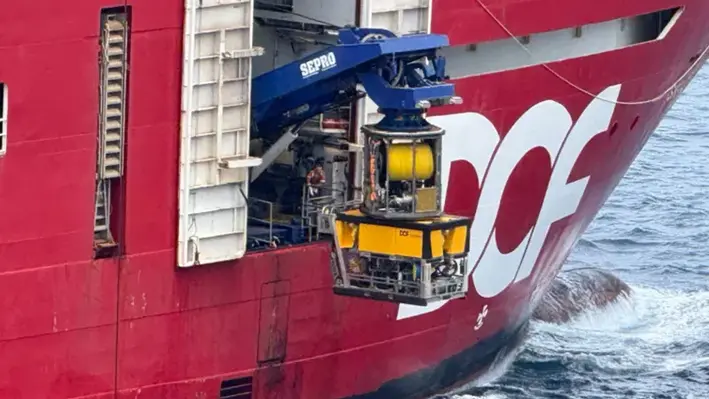
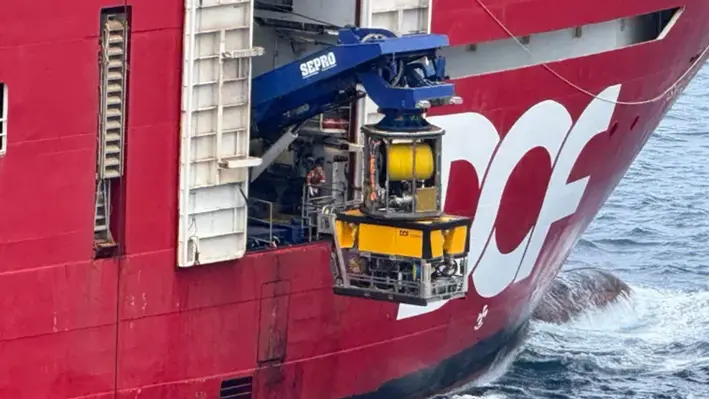
Work to decommission the Northern Endeavour in the Timor Sea is moving to the next phase after the floating production storage and offtake (FPSO) vessel was disconnected from the Corallina and Laminaria oilfields recently.
Australia’s Department for Industry, Science and Resources reported that the decommissioning programme had accomplished what it called a “significant milestone” following the disconnection of risers and umbilical pipelines that had connected the vessel to the oilfields for 26 years, a step that “reduces risk to people and the environment.”
The process has not been without its challenges though after the FPSO reportedly lost power, resulting in the evacuation of crew as a safety precaution, according to a number of media outlets.
It is understood that power has now been restored to the ex-Woodside vessel, which is located some 550 km northwest of Darwin.
Phase 1 contractor Petrofac Facilities Management Limited and multi-purpose vessel, Skandi Hercules, cut eight risers and lowered them to the seabed.
“Removing the connection between the FPSO and the wells means there’s no risk of oil leaking from the FPSO,” the Department noted.
“The disconnection marks an important point in the FPSO’s history since its initial connection to the subsea wells in 1999.”
Nine mooring chains keep the FPSO connected to the seabed, holding it securely in place.
Cutting the chains will be one of the final milestones before removal of the FPSO from the field, an operation scheduled for later in 2025.
The COSCO semi-submersible heavy transport vessel, Hua Rui Long — the third largest of its kind in the world — will eventually tow the FPSO to a facility for decontamination, dismantling and recycling.
Dry towing is deemed the safest and most reliable method to transport a vessel of this size and condition, according to the Department.
The Northern Endeavour FPSO is 274m in length and weighs over 43,000t.
Officials are still going through tenders to find a supplier to ultimately recycle the FPSO.
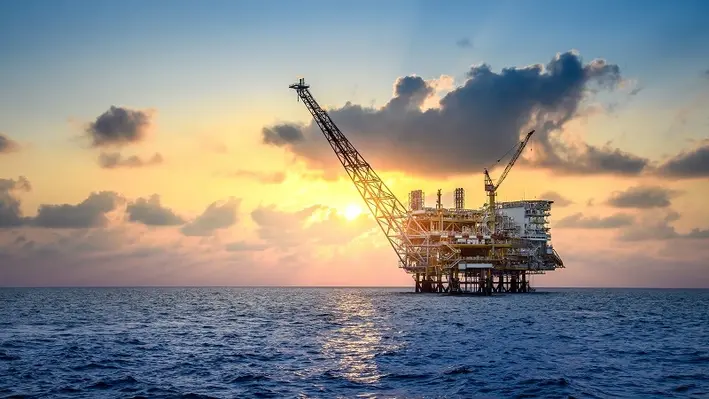

Odfjell Drilling Ltd has announced the successful completion of the Special Periodic Survey (SPS) for the Deepsea Aberdeen, which has now resumed operations following three weeks of scheduled downtime.
The Deepsea Aberdeen is a sixth-generation, semi-submersible offshore drilling rig owned and operated by Odfjell, a Norwegian drilling contractor based in Bergen.
It is designed for harsh environment and ultra-deepwater operations, particularly in regions like the North Sea.
With the completion of the Deepsea AberdeenSPS, the company has completed SPS projects across its entire owned rig fleet: Deepsea Aberdeen, Deepsea Atlantic, Deepsea Stavanger, and Deepsea Nordkapp.
Odfjell said that these were all delivered on time and within budget. The average downtime across all four rigs was below initial estimates.
In addition to the core SPS work, Odfjell Drilling implemented significant upgrades.
A new blowout preventer (BOP) was installed on Deepsea Atlantic, and the variable deck-load capacity was increased on both Deepsea Atlantic and Deepsea Stavanger.
Several client-specific efficiency improvements and minor upgrade projects were also completed.
With the SPS programme now concluded, the company expects a reduction in capital expenditure.
Additionally, the completion eases distribution restrictions under the terms of its US$390mn senior secured first-lien bond.
The company’s next SPS is scheduled for the Deepsea Nordkapp in late 2028.
Kjetil Gjersdal, CEO of Odfjell Drilling AS, commented, “Since early 2022, we’ve been preparing for this critical SPS period. With all eight rigs scheduled between 2023 and 2025, careful planning and strong execution have been essential – and I would like to thank the project organisation and every one of our onshore and offshore personnel for their valuable contributions.
“Our rigs are now in prime condition and installed with the latest technologies providing solid foundations to deliver further value and excellent performance. With significantly reduced capex payments going forward and no debt maturities until 2028, we are well placed for further stakeholder returns.”
Recently, Odfjell’s rigs have been active in the North Sea. The Deepsea Aberdeen is drilling for Equinor at the Breidablikk field, with contracts extended to 2026 and potential options until 2029.
Page 27 of 118